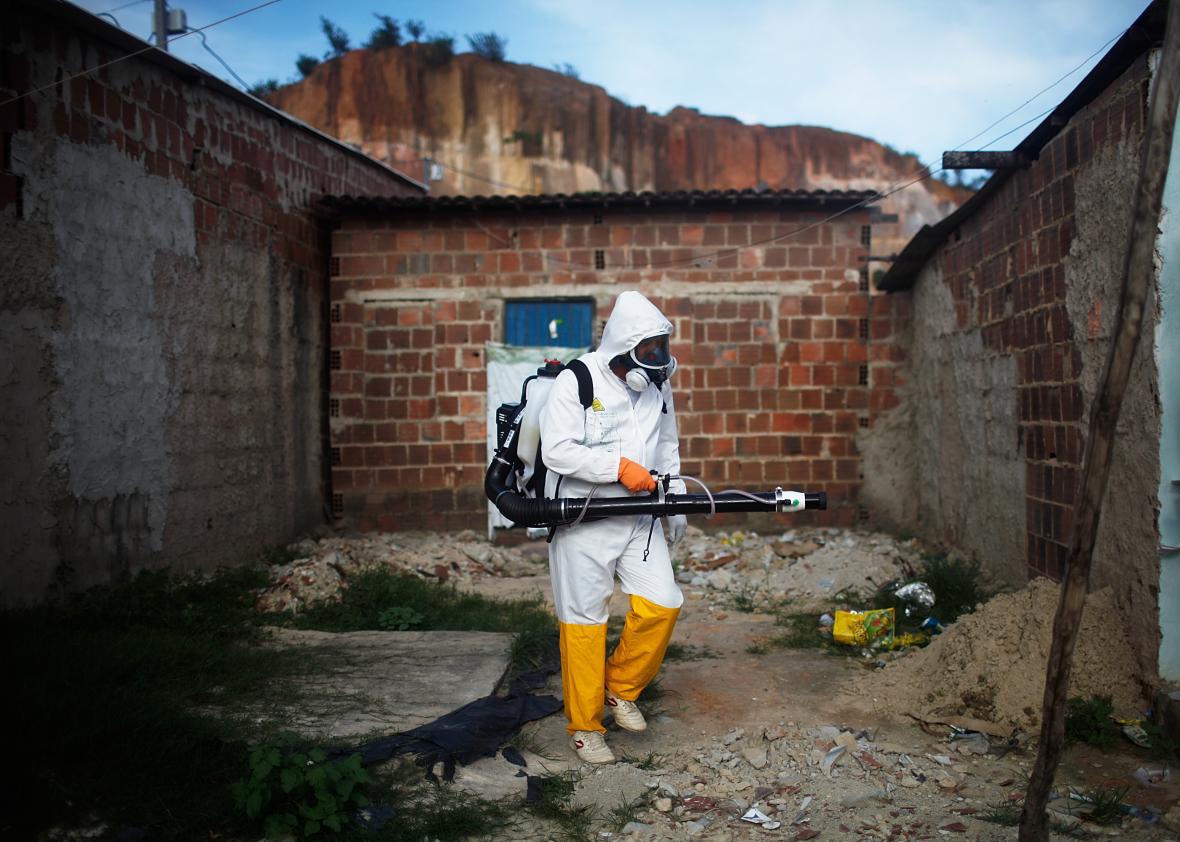There is good and bad news on the U.S. Zika front this week.
First, the bad: We now have pregnant women in the U.S. who have tested positive for the Zika virus, and some are thought to have gotten the disease via sex.
Three women who had been traveling to Latin American countries tested positive for Zika in Florida this week, according to Florida health officials. These are the first pregnant women to test positive for the disease in the U.S., which is significant, because the virus is thought to be most dangerous in pregnant women. It is suspected to cause microcephaly, a condition where babies are born with unusually small heads and incomplete brain development.
Also this week, the Centers for Disease Control and Prevention announced that it is investigating 14 cases of potential Zika transmission through sex, rather than by mosquito bite. In all of these cases, women had sex with men who traveled to Zika countries, and developed symptoms soon afterward. Some of those women are pregnant. “If all the women in the cases the Centers for Disease Control and Prevention is examining test positive for the virus … officials believe there is no way other than sex that they could have contracted it,” reports to the New York Times.
As of Wednesday, there were about 90 confirmed Zika cases in the U.S., all from people who had been traveling to Zika-prone countries. The majority are in Florida, where there were 32 cases as of Thursday. Michigan also had its first confirmed case this week, a 61-year-old woman who had recently returned from Barbados, health officials confirmed Wednesday. And it’s not even summer yet. Experts agree that once the weather begins to warm up, Zika will spread more easily.
Some good news: As my colleague Eric Holthaus reported last week, the race for a cure is on. Virus experts in academia, government, and private industry worldwide are working together to develop a vaccine. The World Health Organization recently dedicated $56 million toward combating the virus, and Congress is debating President Obama’s proposed $1.8 billion in Zika-related funding. Meanwhile, the National Science Foundation is currently accepting proposals for projects to better understand and mitigate the spread of the virus.
This week, Japanese researchers at the National Institute of Infectious Diseases successfully cloned the Zika virus for the first time, which means that we’re one step closer to having an effective vaccine. As Holthaus explained, there are two routes toward a vaccine: genetic engineering, which involves combining a nonmutating segment from the Zika virus with a different virus; or a “nonreplicating whole virus particle product,” which involves injecting a dead Zika virus into people. The Japanese researchers are going for the latter.
According to Shigeru Tajima, who led the effort*:
As early as next month, the team will likely be able to clone the strain of the Zika virus now spreading in Latin America by recombining the genes of the cloned virus, helping to pave the way for the development of a vaccine.
Read more of Slate’s coverage of the Zika virus.
*Correction, Feb. 25, 2016: This post originally misspelled Shigeru Tajima’s first name.
